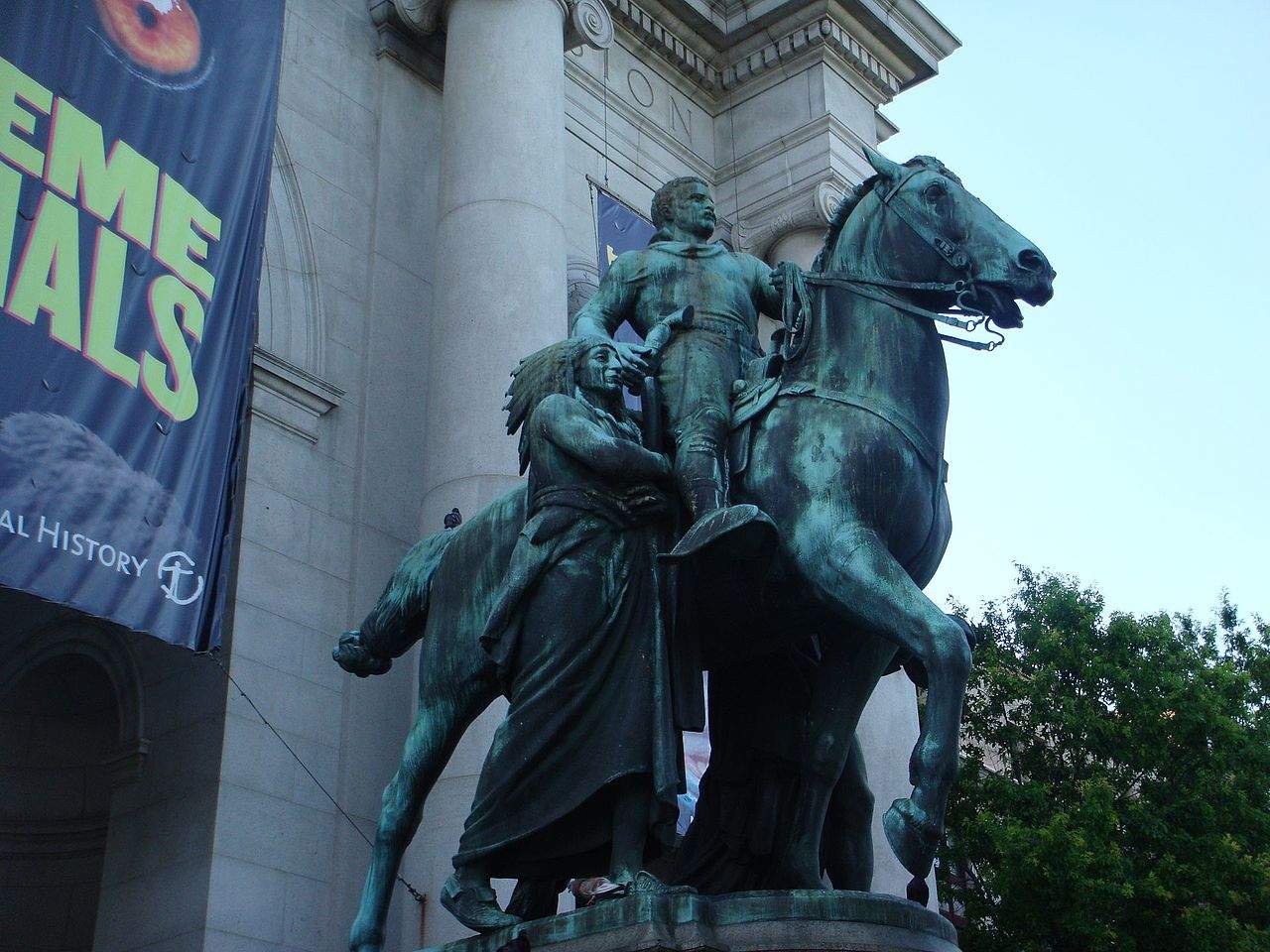The monument to Theodore Roosevelt that stands in front of the entrance to theAmerican Museum of Natural History in New York, one of the world’s best-known natural history museums, will be removed. The bronze sculpture is the work of artist James Earle Fraser (Winona, 1876 - Westport, 1953), was created in 1925, and stands in front of the museum because Roosevelt, who was president of the United States of America between 1901 and 1909 (to date he is the youngest president in history, elected when he was only forty-two years old) and Nobel Peace Prize winner in 1906 (in fact, he was a decisive mediator in the war between Russia and Japan), had interests in the natural sciences and was also the author of a number of publications in this field.
The problem with the statue, this time, is not the character, but the way it is depicted: Roosevelt, on horseback, is in fact accompanied by a Native American, wearing the typical feathered headdress, and an African American, who escort him on either side. “The statue,” the museum explained, “has long been controversial because of the hierarchical composition that places one figure on horseback and two others walking alongside her, and many of us find the depiction of the figures of the native and the African and their positioning to be racist.”
The statue stands atop a tall plinth in front of the entrance to the museum (also known in Italy as the setting for the very famous film A Night at the Museum, where Roosevelt is one of the main protagonists, among other things), which, however, is owned by the city: the museum has therefore asked the administration for a letter requesting its removal. “As we strive to advance the passionate racial justice journey of our institutions, our city and our country,” wrote Ellen Futter, president of the museum, “we believe that removing the statue is a symbol of progress and our commitment to building and sustaining an inclusive and equitable museum and a more open society.”
New York City has already welcomed the request. “The American Museum of Natural History,” said Mayor Bill De Blasio, “has asked to remove the statue of Theodore Roosevelt because it explicitly depicts blacks and natives as subjugated and racially inferior. The city supports the museum’s request. It is the right decision and the right time to remove this problematic statue.” The proposal was also viewed positively by Theodore Roosevelt IV, a descendant of the president and trustee of the museum: “The world does not need statues, relics of another era that reflect neither the values of the person they are meant to honor nor the values of equality and justice,” he said. “The composition of the equestrian monument does not reflect the legacy of Theodore Roosevelt. It is time to remove the statue and move forward.”
The plan to remove the Roosevelt statue is not a last-minute stunt in the wake of the Black Lives Matter protests: there have been discussions about what to do with the equestrian monument for some time now, and eventually, in 2018, the city’s commission on monuments had decided to leave it in place because there was not enough consensus about its eventual removal. Last year, the American Museum of Natural History had also organized an exhibit, Addressing the Statue, to raise debate around the monument: according to the institute, the exhibit hit the mark, having promoted dialogue on some important issues regarding racism and the representation of different cultures. Now, a year later, the museum felt it had to take a stand.
However, the museum will remain “the official Roosevelt memorial in New York State,” a note reads. "The Roosevelt family has long been associated with the museum, starting with the president’s father and ending with his grandson, Theodore Roosevelt IV, who is one of the museum’s trustees. And in honor of Theodore Roosevelt’s role as a leading figure in conservationism, the Biodiversity Room in the museum will be named after him."
Pictured: the monument. Ph. Credit Pablo Costa Tirado
 |
| New York, controversial Roosevelt monument in front of natural history museum will be removed |
Warning: the translation into English of the original Italian article was created using automatic tools. We undertake to review all articles, but we do not guarantee the total absence of inaccuracies in the translation due to the program. You can find the original by clicking on the ITA button. If you find any mistake,please contact us.